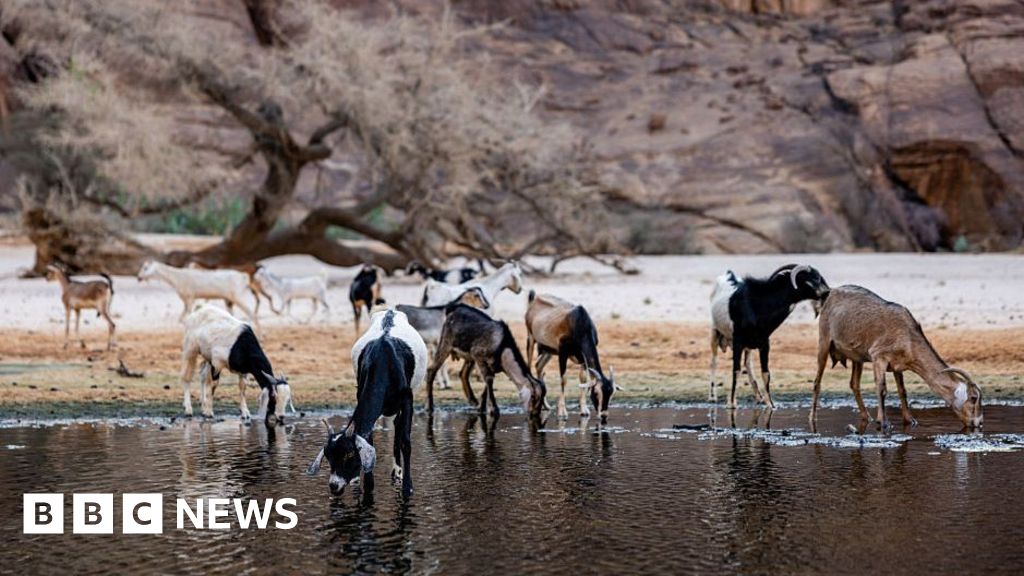Chad cuts ties with wildlife charity linked to Prince Harry

```html Chad Ends Agreement with African Parks, Citing Poaching Concerns
The Chadian government has terminated its 15-year agreement with African Parks, a conservation organisation with the Duke of Sussex, Prince Harry, on its board of directors. The government alleges the charity failed to adequately address poaching within two protected sites it managed in the country.
The decision, announced on Monday, concerns the Ennedi Natural and Cultural Reserve and the Greater Zakouma Ecosystem, which includes Zakouma and Siniaka-Minia national parks. The Ministry of Environment accused African Parks of exhibiting an "arrogant and disrespectful attitude" and failing to fully cooperate with Chadian authorities.
Government Cites Lack of Investment and Cooperation
In an official letter, Environment Minister Hassan Bakhit Djamous pointed to a resurgence of poaching within the natural parks as a key reason for the termination, attributing it to a perceived lack of investment by African Parks. The government contends that the charity did not adequately address the escalating threat to wildlife within the protected areas.
African Parks has responded by stating it has "begun talks with the ministry to understand the government's position and explore the best way forward to support the continued protection of these landscapes that are critical to conservation."
African Parks' Wider Operations and Challenges
Founded in 2000, African Parks manages 22 national parks and protected areas across 12 countries, aiming to protect Africa's national parks and advance conservation, particularly in regions struggling with poverty and conflict. The organisation manages over 20 million hectares, striving to make each park "ecologically, socially and financially sustainable for the long term."
The Chadian government's decision is not the first challenge faced by the organisation. Earlier this year, African Parks acknowledged incidents of abuse by its employees against local community members in a park it manages in the Republic of Congo. The organisation faced criticism for its initial reluctance to publish an independent report into these allegations.
Prince Harry's Role and the Charity's Funding
Prince Harry has been involved with African Parks since 2016, serving as its president for six years before becoming a board member in 2023. The organisation's website lists prominent donors, including the European Union, Rob Walton (heir to the Walmart fortune), and Howard Buffett (son of Warren Buffett). According to its 2023 annual report, the charity receives over $500,000 annually from its funders.
Expert Perspectives on Conservation Challenges
Dr. Naomi Ole Sululu, a conservation biologist specializing in East African wildlife management, commented on the complexities of conservation efforts in challenging environments. "Effective conservation requires a multi-faceted approach involving strong community engagement, robust anti-poaching strategies, and transparent collaboration with local authorities," she stated. "While international organisations can bring resources and expertise, ultimately, success hinges on building trust and ownership within the local communities and respecting national sovereignty."
Professor Abdoulaye Bathily, a political analyst focusing on governance in the Sahel region, highlights the importance of national ownership in conservation initiatives. "There is a growing sentiment across Africa that conservation efforts must align with national development priorities and respect the agency of local communities. Governments are increasingly assertive in demanding greater transparency and accountability from international NGOs operating within their borders."
Historical Context and Current Trends in African Conservation
The relationship between international conservation organisations and African governments has often been fraught with tension, stemming from colonial legacies and differing priorities. Historically, conservation efforts were sometimes perceived as prioritizing wildlife preservation over the needs of local communities, leading to resentment and conflict. In recent years, there has been a growing emphasis on community-based conservation models that empower local populations to participate in and benefit from conservation initiatives.
The Chadian government's decision underscores a broader trend of African nations asserting greater control over their natural resources and demanding more equitable partnerships with international organisations. It serves as a reminder that successful conservation requires a collaborative approach built on mutual respect, transparency, and a shared commitment to sustainable development. ```
Originally sourced from: BBC News Africa
